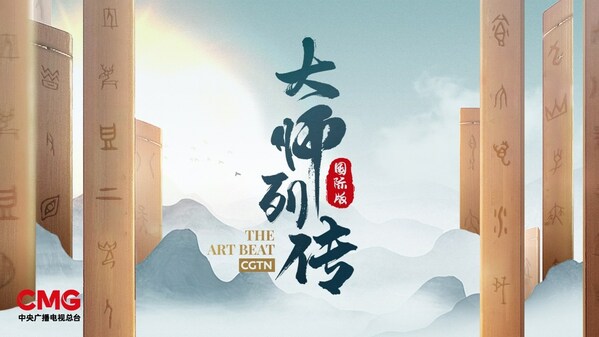BEIJING, Aug. 30, 2023 /PRNewswire/ — The Art Beat Season II premiered on CGTN television and various social media platforms on August 21. Each of its eight episodes focuses on the life and work of a different leading contemporary Chinese artist. Produced in multiple languages, it describes how their art tells China’s story from a cultural perspective.
Through an examination of their personal philosophies and their original paintings, performances and writings, the series reveals how, emboldened by the inspiration and strength they have gained from Chinese traditions, each artist has embraced innovation and taken his or her chosen art form into new areas of exploration.
Renowned artist Wu Yueshi believes that the essence of Chinese painting is found in the spiritual aspect of the whole. Only through deep cultivation is it possible to master subtlety of expression and gradually gain an insight into the profound and vast realm of Chinese art.
"Read, then paint" is the motto of Liu Wanming, an artist who is committed to depicting nature in the spirit of traditional Chinese painting. His love of reading, he says, has enabled him to bring an additional dimension of ancient charm to his paintings of the scenery of his hometown.
As an artist constantly seeking innovation, Shi Qi proposes the concept of "Three Forms in One". The duality of representation and abstraction, he says, is incomplete. Rather, the trio of representation, impression and abstraction offer a fuller picture, defining both life and artistic creation.
"Art is a lifestyle that makes me happy," says He Jialin, a painting master with a wide range of artistic interests. He believes in cultivating patriotism through his work and promoting traditional Chinese culture. In recent years, he has visited many ancient villages in China, determined to preserve the fading cultural heritage of these communities.
Ballet dancer Feng Ying’s career has been defined by a relentless pursuit of excellence and artistic expression. Persistent and dauntless, she has overcome various difficulties and ascended to the very pinnacle of her profession. Today, as the director of the National Ballet of China, she remains as committed as ever to her art.
"Audiences should be glued to their seats, listening intently to your every word," says pingshu artist Tian Lianyuan. On stage, he uses just three everyday objects as props to tell his story – a fan, a wooden block and a handkerchief. Yet he manages to conjure "a life story, a historical drama" in which the audience become immersed in thousands of years of history and vast landscapes populated by vivid characters.
As the youngest recipient of the Mao Dun Literature Prize,Alai says he was destined to write. As a writer, he keenly evokes moments of excitement, confusion and pain without ever losing his sense of contemplation. "Humans are both the starting point and the destination," he says.
"Using broad strokes and big ink blocks to bring a three-dimensional effect to the paper," has been the defining approach of Zhou Jingxin. In 1995, he debuted a series of paintings that introduced a brand new style: "Ink Sculpture". He firmly believes that traditional Chinese painting is consistent with the concept of three-dimensionality.


